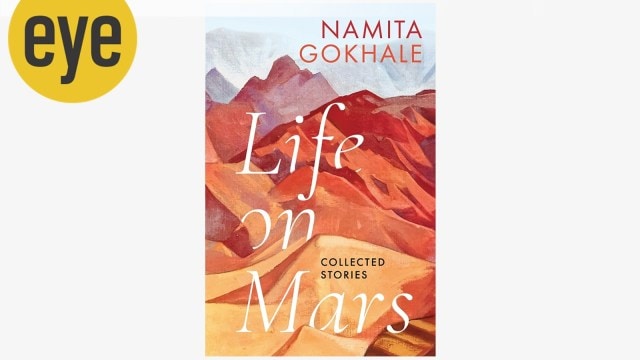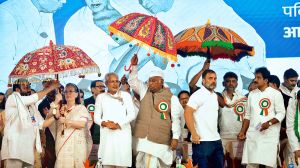Namita Gokhale’s short fiction collection Life on Mars is an ode to women, mythology and desire
Gokhale binds these stories together with the glue of women’s collective experiences. Women from all walks of life populate these tales — those who take lovers, widows, divorcees, good Indian wives, women battling cancer, depressed women, privileged women, women marked by sexual abuse and loneliness
 In this collection, some characters have their lives cut short in moments of inexplicable violence, while others languish slowly (Credit: Amazon)
In this collection, some characters have their lives cut short in moments of inexplicable violence, while others languish slowly (Credit: Amazon)It is said that those who read live many lives, but those who immerse themselves in Namita Gokhale’s short story anthology Life on Mars may find that they have traversed entire worlds — worlds where myth and modernity collide, where Queens Gandhari and Kunti coexist with the women of the 21st century. Comprising 15 stories divided into two sections — ‘Love and Other Derangements’ and ‘The Mirror of the Mahabharata’ — this collection swings effortlessly between genres, geographies and epochs.
In one moment, the reader is in a Delhi flat, immersed in the heavy air of unsaid words; in another, they are contemplating life on Mars. One moment they are navigating the lakes of Nainital; the next, they are at Lake Como, meandering through the streets of London, or standing before the silent magnificence of the Taj Mahal. Gokhale binds these stories together with the glue of women’s collective experiences. Women from all walks of life populate these tales — those who take lovers, widows, divorcees, good Indian wives, women battling cancer, depressed women, privileged women, women marked by sexual abuse and loneliness. Women with long hair and women with alopecia. Women who stand at the crossroads of duty and desire, women who inherit the expectations of generations.
While one, an astrologer, mans the matrimonial desk as she grapples with her own uncertain future, another finds love on the internet during the pandemic. Elsewhere, a beautiful woman loses her reason to live, and another shapeshifts, declaring, “I have given up my woman’s body. I am no longer man nor woman. I am a pure soul”. Gokhale’s women are devout believers and pragmatic sceptics, those who place faith in the divine and those who understand, in a brutal world, that one can only rely on oneself.
Much like life itself— cyclical, contradictory, eternal — the Mahabharata runs like a pervasive force through this collection. The Mahabharata is often told as a tale of men and their wars, but Gokhale shifts the lens, revealing the lives of women whose stories have long been ignored. Through the stories of women named after virtuous maidens, scholars wrestling with translations of the ancient text, or the griefs and longings of Gandhari and Kunti revisited through the eyes of a help, the Mahabharata is lived and reimagined in voices both modern and ancient.
In this collection, some characters have their lives cut short in moments of inexplicable violence, while others languish slowly. Obituaries become bridges between the living and the dead, bringing the comfort and certainty that, in another world, friends will continue your stories.
The Taj Mahal, the ultimate mausoleum of love, bears witness to visitors grappling with the ghosts of failed relationships, the dead weight of lifeless marriages, and the flutterings of new love. A self-proclaimed ugly ‘stepsister’ grappling with infidelity muses that for all her beauty, even Princess Diana could not keep the Prince forever. In another tale, Vatsala Vidyarthi, who ironically hates alliteration, against her better judgement, has a life-altering one-night stand with an enigmatic man in Rishikesh.
The storytelling is refreshingly imbued with Indian metaphor and flavour. One might find a mystery or two, not in the tradition of Sherlock Holmes, but with a uniquely homegrown flavour. One takes in the damp, pungent smoke of funeral pyres, the silent stare of a Bhutia dog, the whisper of ancient stone walls and the majestic, grieving mountains. And, one is also surprisingly treated to the inner lives of stones, some of whom are absently kicked and others worshiped as God.
Gokhale mingles history with the banal, as when a family in Nainital listens to the radio announcement of Chacha Nehru’s death and processes the profound loss of someone they have never met. In the end, one cannot help but agree with a character’s proclamation: “God is great and love is bloody blind.”
Must Read
Buzzing Now
Apr 10: Latest News
- 01
- 02
- 03
- 04
- 05


























